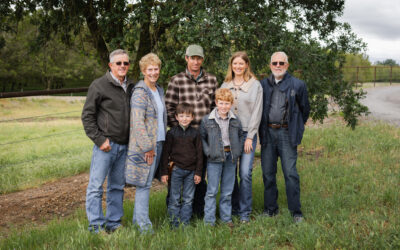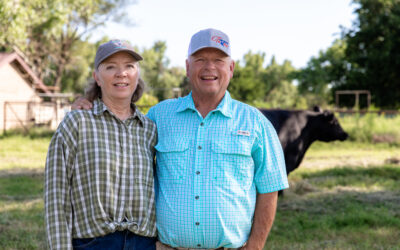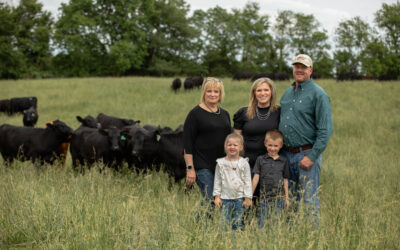
Following the Calves: Relishing the routine
What are you going to do with all your money when you retire?” Lew Evert asked his brother John.
“I’m going to keep it.”
“No you’re not. You’re going to buy a ranch.”
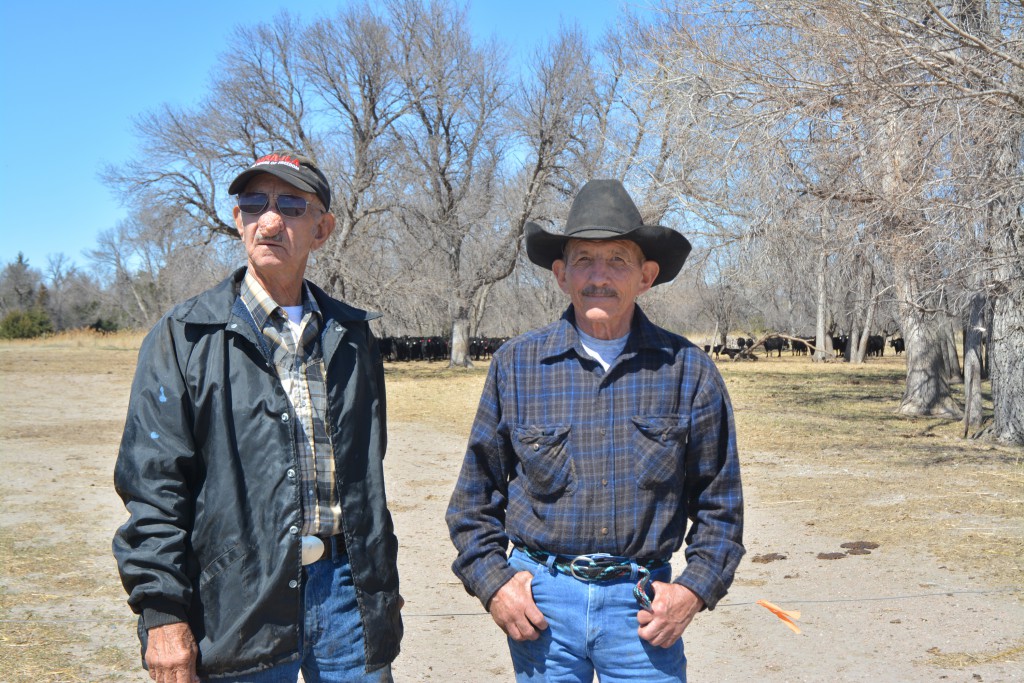
So they did.
I finally got to meet the two men who had the vision to create Broken Hills Ranch and started the herd that we’ve been profiling as part of our “Following the Calves” series
They told me stories and I laughed. Big personalities, but equally as genuine. You could just hear how pleased they were with the way things have turned out.
“I was glad when ‘the girls’ wanted to take this on,” John says. Lew pipes in, retelling of how Virginia learned the cattle business from scratch. Talking of his nephew Brandon, he jokes, “I can’t believe he had to go all the way to Iowa to find himself a cowgirl, but he’s got one.”
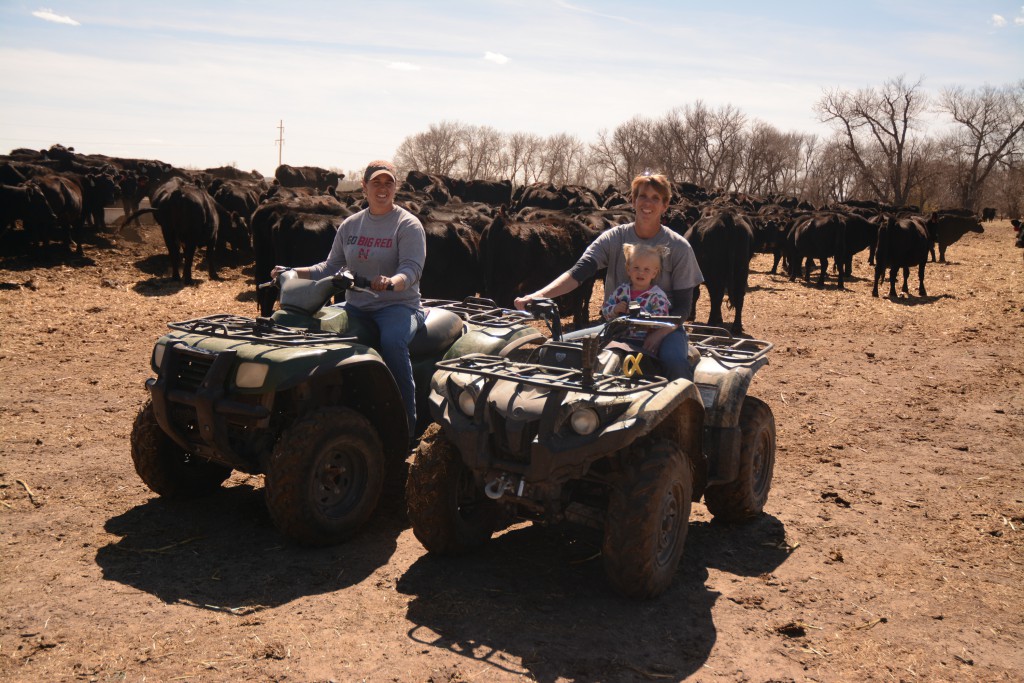
When Lew’s son Kirk married, it was to someone the family had known for years. Rachael is also key to the plan to both grow and improve the herd.
Near Brady, Neb., I joined them in a calving pasture that borders the Platte River. It’s been Rachael and Virginia’s second home since the heifers started in February and the cows followed in March.
“We only have 24 left, with another month left in the calving season,” Rachael told me last week, as she surveyed the white board version of a calving book. Fertility was good.
“If you keep the cows in good shape, they’ll breed back,” John observes.

Research shows early-born calves not only have a weight advantage, but a carcass one, too, which is exciting to think about as they look to fall, but it sure makes for busy days.
At nights, the Angus cows—where calving ease was a major focus for decades—are left to “do it on their own,” Rachael says, noting they haven’t had many problems.
After most of the kids are in school, the women meet to check on the mamas and tag any new babies. They’ll do it again just before somebody has to run to meet the bus. This season they’ve had up to 15 in one day.
The kids do homework in the converted half-trailer-house that is half breakroom, half barn—with space to watch a cartoon or warm a calf in front of a woodstove. The girls have outgrown the pack-n-play, but one still stands at the ready for any furry baby that needs assistance.
It’s gone unused this year. Save for one snowstorm, the central Nebraska weather has been mild. They are keeping an eye on Mother Nature though, as she’s caught them off-guard before.

“We came and took pictures because we thought, ‘We’ll never see this again in our lifetime,’” Brandon remembers. Just nine months later in spring 2015, the river rose swiftly.
“We had to move cows in the middle of the week,” Virginia says. That’s a challenge since most big projects are completed during weekends when their husbands are home.
The word “flood” has already come up, so the family is only bringing a week’s worth of hay at a time and are ready to move. Branding is set for the end of the month.
When asked to sum up calving season so far, Virginia says, “Uneventful.”
And no one in the Evert family is complaining about that.
May your bottom line be filled with black ink,
Miranda
P.S. Catch up on the rest of the Evert family’s story with these posts:
Our “Following the calves” series will also take you to Arizona and Florida in these posts:
You may also like
Legacy in the Golden Land
On a quiet stretch of Northern California rangeland, a different story unfolds. The Borror family’s legacy modestly speaks through the cattle they raise, the ground they steward. The generations who’ve made a life here demonstrate commitment to doing things right, even when no one is watching.
Helping Hands, Helping Herds
“When I die, I want to come back as one of your cows,” murmurs a friend to Steve Zybach. Full to the brim from an alfalfa ration every day, bountiful fields of lovegrass stretched out across the Texas Panhandle—and owners who leave no ounce of cattle care up for question. The Zybachs’ motivation for this level of dedication to their Angus cattle is simply love.
An Ambassador for All
Joanie, with daughter Lindsey and her husband, Adam Hall, raise registered Angus cattle with two primary goals: producing high-quality seedstock that perform well in a wide variety of environments and ensuring end-user satisfaction. Those goals tie everything together, from promoting Angus to other producers to sharing their story with CAB partners and beef consumers.

